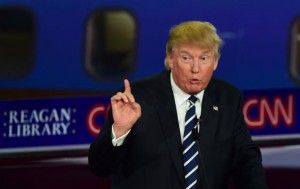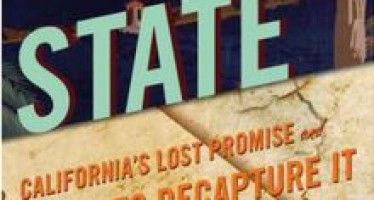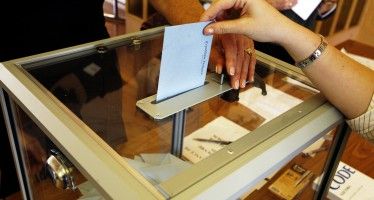Bill to keep Trump off 2020 ballot could trigger copycat measures
 A bill the California Legislature sent to Gov. Jerry Brown that’s intended to keep President Donald Trump off the 2020 California ballot could instead end up ushering in an aggressive new era of scorched-earth national politics – if it survives lawsuits.
A bill the California Legislature sent to Gov. Jerry Brown that’s intended to keep President Donald Trump off the 2020 California ballot could instead end up ushering in an aggressive new era of scorched-earth national politics – if it survives lawsuits.
Under Senate Bill 149, introduced by state Sens. Mike McGuire, D-Healdsburg, and Scott Weiner, D-San Francisco, presidential candidates would be ineligible for the California primary and general election ballots unless they had released their tax returns for the previous five years.
If Brown signs the bill, this would mean Trump couldn’t appear on the 2020 California ballot if he ran for re-election and secured the Republican nomination – at least if he stuck to his opposition to disclosing his taxes. McGuire and Weiner insist the bill is a serious attempt to respond to Trump’s refusal to release his returns during the 2016 campaign. Republicans and some Capitol insiders see it as one more attempt to convey Trump-loathing after a legislative session which saw similar frequent displays.
Enactment of the law seems certain to trigger a legal challenge. State-imposed term limits on members of Congress were thrown out in 1995 by the U.S. Supreme Court on the grounds that states couldn’t tell the federal government who was eligible for federal office.
But so far at least, a cross-section of legal authorities believe SB149 could be upheld if it becomes law, allowing California to impose requirements beyond the present basics that a presidential candidate must be a natural-born citizen who is at least 35 and who has lived in the U.S. for 14 or more years.
Given that the requirement is not onerous and is related to qualification for office, “our research and reflection lead us to conclude that tax return disclosure laws … comport fully with the U.S. Constitution,” wrote Laurence Tribe, Norman Eisen and Richard Painter. Tribe and Eisen have histories of Democratic allegiances, while Painter was an ethics lawyer for President George W. Bush.
UC Irvine law professor Richard Hasen, considered one of the nation’s top election-law experts, said it is difficult to anticipate what federal courts might hold, given that SB 149 appears to bring elements of the U.S. Constitution into conflict. In interviews earlier this year, when the McGuire-Weiner bill first won notice, Hasen stressed the measure’s novelty: “Nobody’s tried it before.”
Tactic could be used against Sanders, Clinton
One reason for that might be political operatives’ awareness the tactic could be used against their preferred candidates in future elections.
In swing states controlled by Republican legislatures and governors like Wisconsin and Ohio, for example, attempts could be made in 2020 to deny ballot placement to candidates who had not belonged to a major party over most of the preceding year (Sen. Bernie Sanders); who had not fully complied with document requests from federal investigators (former Secretary of State Hillary Clinton) or who didn’t offer full details on business deals undertaken with donors (many candidates). As Los Angeles Times columnist George Skelton wrote, the potential for mischief is immense:
What would be next? A requirement that every candidate release a thorough health fitness report disclosing all past illnesses? Make the candidates pledge to campaign in California for at least 10 days? And how would red states retaliate? Force every candidate to disclose whether they’ve ever voted for a tax increase?
But the San Jose Mercury-News recently pointed out a detail that suggests this debate could be academic. Brown refused to release his tax returns when running for governor in 2010 and 2014. Signing SB149 and going after Trump for his refusal to do so would seem problematic at best for the governor.
Chris Reed
Chris Reed is a regular contributor to Cal Watchdog. Reed is an editorial writer for U-T San Diego. Before joining the U-T in July 2005, he was the opinion-page columns editor and wrote the featured weekly Unspin column for The Orange County Register. Reed was on the national board of the Association of Opinion Page Editors from 2003-2005. From 2000 to 2005, Reed made more than 100 appearances as a featured news analyst on Los Angeles-area National Public Radio affiliate KPCC-FM. From 1990 to 1998, Reed was an editor, metro columnist and film critic at the Inland Valley Daily Bulletin in Ontario. Reed has a political science degree from the University of Hawaii (Hilo campus), where he edited the student newspaper, the Vulcan News, his senior year. He is on Twitter: @chrisreed99.
Related Articles
Book describes CA problems, how to fix them: Part 1
This is Part 1 of a two-part series. Part 2 is here. If you listen to Gov. Jerry Brown and
Polls show smarmy Biden loses VP debate
Oct. 12, 2012 Katy Grimes: I couldn’t decide if Vice Presidential incumbent Joe Biden was manic during the VP debate
Will 2016 be the ‘Year of the Initiative’?
The Legislature is back in town this week but in the major policy issues department the Legislature is likely to




